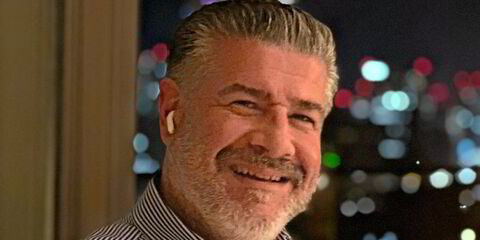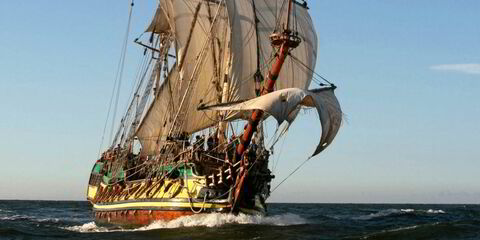“The one thing we do know fundamentally about shipping about the next 10 years is that it is not going to be very good.”
Is Peter Weernink of SwissMarine suggesting it is time to abandon the sinking bulk carrier?
(Uncertainty in dry bulk industry set to continue for years to come)
“In victory you deserve it and in defeat you need it. I’ve had both in the past year.”
But Scorpio’s Robert Bugbee in Churchillian mode finds wet and dry Pol Roger a help regardless of markets.
(Bugbee gives NY forum a lesson in humility)
“The average owner in the dry cargo space owns six to seven ships, or under 1% of the total fleet on the water today. This makes it hard to take advantage of economies of scale, receive superior information and improve fleet utilisation, which causes imbalances between markets, erratic income swings and higher-than-necessary costs."
John Michael Radziwill of C Transport Maritime makes a plea for owners to work together to overcome current problems in the bulk carrier market.
(Consolidation can solve dry bulk woes)
“It’s not Germany’s fault that the Greek government hasn’t taxed shipowners.”
Christian Democrat parliamentary leader, Volker Kauder, plays the blame game as Greece and its creditors try to cut a deal to avoid default and a possible Grexit.
(Greek shipping companies unfazed by capital controls)
“I’ve watched people retire and seen what happens to them. And I’ve said to myself, it’s not going to happen to me. As long as there are people who have trust in me and make a phone call, I’m going to be there.”
Brian Starer of the Squire Patton Boggs law firm has turned 70 but is still hoping to add to his tally of ship casualties cases.
(Crusading legal eagle has no retirement brief in mind)
“We’ve got 90% of the products in the world moving by water and ships by their very nature are going to get into trouble, so marine casualty work, in particular, is never going to disappear.”
Ships may be getting safer but Starer doubts ship casualty work is set to dry up.
(A voyage that began in rural upstate NY)
UK Club loss prevention chief, Karl Lumbers, sees ship pride as a route to safer shipping as he calls time on a long maritime career.
(Loss prevention pioneer Lumbers rings time on long marine career)
“Intimidation, bullying and harassment are often an unfortunate part of life onboard flag of convenience vessels and it’s allowed to happen because of jurisdictional blurred lines and lack of regulation.”
Dean Summers of the ITF warns that life at sea is no cruise for seafarers from developing countries.
(Australia orders state probe into FOC system)
“There are documented cases of senior officers electing to terminate their careers because of a brush with the law or deciding to seek alternative employment that would leave them less vulnerable to criminal prosecution.”
Deirdre Fitzpatrick of Seafarers’ Rights International calls for more help for crew facing criminal investigation and the loss of liberty.
(IMO joins SRI drive to improve crews’ due process)
“Traumatised crews were no longer being dispatched to Durban after their release.”
The Rev Boet van Schalkwyk explains why the Sailors’ Society has set up a trauma counselling centre in South Africa to help seafarers overcome pirate trauma.
(Sailors’ Society primed to help victims of piracy)
“Instead of waiting in a state of vulnerability in hostile waters, often 200 nautical miles from the destination port, vessels can now take refuge under Ghanaian Exclusive Economic Zone, until a berth is allocated, then steam straight to their destination, with a minimum fear of attack.”
Jon Stamper of the Watchwood security firm has a solution to Nigeria’s opposition to foreign ship guards.
(Foreign guards win West Africa access)
“From the vessel operator’s perspective, the low entry barrier has created excessive competition for serious players from sometimes fly-by-night players.They are attracted by the prospect of long-term revenue streams, as well as low accountability stemming from fuel consumption not being part of the cost evaluation process and quality, health, safety and environment standards not meeting oil and gas industry guidelines.”
Gaurav Peety of Kritika Consulting argues for more demanding criteria to be set for offshore vessels operating in Indian waters.
“It is almost like equipping the space shuttle to cut the lawn.”
Fearnleys highlights that a downturn in work has led to large and capable offshore vessels being deployed as accommodation.





